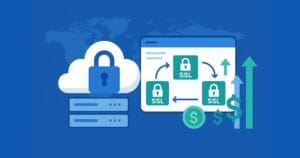Who are You: Freelancer or Business Owner?
As a business entity, there’s really no difference, legally-speaking, whether you consider yourself a freelancer or business owner. Yet, the distinction is an important one to make, not only to determine who your target client will be, but also to establish your future goals, write a business plan, and so forth.
The term freelance comes from medieval mercenary warriors, called “free-lance” because their lance was not sworn to any lord’s services, but was available for hire. The freelancing lifestyle offers more freedom than “being in business”—especially for a single person. I know someone who pulled up stakes and traveled throughout Europe while still maintaining his freelance clients. On a recent discussion on LinkedIn, someone made this poetic observation:
We’re freelancers. Each contract is a mission; each mission is an adventure (a bit heroic, isn’t it?).
As a freelancer, you’ll be contracting yourself out to perform a certain task. You might work for a company as an independent contractor to build a website, do some programming or SEO. You might also work with other design firms or for a company with an in-house web team that you’d interface with. You probably don’t have plans beyond being a one-man or one-woman show and supporting yourself by trading your time for dollars.
I look at the business model as being a consultant paid to produce a certain result. It involves being able to understand and solve a client’s bottom line business issues, using your expertise in web technology and Internet marketing. The typical client would be businesses, corporations, and non-profits who have no in-house web resources available to them. The ultimate goal would be to eventually hire freelancers or employees to replace yourself, so you can work on your business rather than in it.
Having a portfolio is always a concern when first stating out. It’s a Catch-22: you can’t get clients without a portfolio, and you can’t build a portfolio if you don’t have any clients. Pursuing the business model, I found that none of my early clients even asked to see mine. If you are freelancing, then a portfolio may be more essential, especially if you are looking to sub-contract to other agencies. No matter which path you take, you’ll have to figure out how to find and be found by your clients (marketing) and how to reach an agreement to do business with those clients (selling). Learning how to market and sell your services is crucial, regardless of if you are pursing the “business” concept or that of a freelancer.
For me, freelancing felt too much like working for someone else—like a subordinate paid to push the right buttons on the keyboard, instead of someone providing a business solution. That’s why I never bothered with freelance marketplaces where you’re one of a hundred other low-ball bidders. I preferred to be paid for my knowledge and expertise, and be viewed as a peer. But that’s me. There isn’t a right or wrong choice. You ought to pursue whichever fits you best.
Which do you prefer? Do you market yourself as a freelancer or a business, and was that a deliberate choice? Post your comments.
Frequently Asked Questions (FAQs) About Freelancing and Business Ownership
What are the key differences between a freelancer and a business owner?
A freelancer is an individual who offers their skills and services to multiple clients at a time, often working on different projects simultaneously. They have the freedom to choose their clients and projects, but they also bear the responsibility of finding and managing their own work. On the other hand, a business owner runs an organization that offers products or services. They may employ other people and have more responsibilities, including managing employees, maintaining business operations, and ensuring profitability.
Can a freelancer become a business owner?
Absolutely. Many freelancers transition into business ownership by expanding their services, hiring employees, and establishing a formal business structure. This transition often involves additional responsibilities, including managing employees, maintaining business operations, and ensuring profitability.
What are the advantages of being a freelancer over a business owner?
Freelancing offers a high degree of flexibility and independence. Freelancers can choose their clients, set their rates, and work on projects that they find interesting and fulfilling. They also have the freedom to work from anywhere and set their own schedules. However, freelancing also comes with its own set of challenges, including income instability and the need to constantly find new clients.
What are the advantages of being a business owner over a freelancer?
Business ownership can offer greater earning potential and stability compared to freelancing. As a business owner, you have the opportunity to scale your operations and grow your income. You also have more control over your business’s direction and strategy. However, business ownership also comes with increased responsibilities and risks.
What are the financial implications of being a freelancer versus a business owner?
As a freelancer, your income can be unpredictable and may fluctuate based on the number of projects you have. You’re also responsible for managing your taxes and benefits. As a business owner, you may have a more stable income, but you also have more financial responsibilities, including payroll, taxes, and business expenses.
How does work-life balance compare between freelancing and business ownership?
Both freelancing and business ownership can offer flexibility, but they also require a significant time commitment. Freelancers often have the freedom to set their own schedules, but they may also face periods of high workload. Business owners, on the other hand, often work long hours and may struggle to separate their personal and professional lives.
What skills are needed to transition from freelancing to business ownership?
Transitioning from freelancing to business ownership requires a range of skills, including leadership, strategic planning, and financial management. You’ll also need to be comfortable with risk-taking and decision-making.
How can I decide whether to remain a freelancer or become a business owner?
This decision depends on your personal goals, skills, and risk tolerance. Consider your long-term career goals, your desire for stability versus flexibility, and your comfort with managing others.
What are the legal considerations when transitioning from freelancing to business ownership?
Transitioning from freelancing to business ownership involves several legal considerations, including choosing a business structure, registering your business, and complying with tax and employment laws.
Can I be both a freelancer and a business owner?
Yes, it’s possible to be both a freelancer and a business owner. For example, you might run a small business while also taking on freelance projects on the side. However, balancing both roles can be challenging and requires careful time management.
Former owner and partner of web firm Jenesis Technologies, John is currently Director of Digital Strategy at Haines Local Search, a company providing local search marketing solutions to SMBs, including print and Internet Yellow Pages, web design, and local SEO. When not working or spending time with his family, John offers great sales and marketing advice on his blog, Small Business Marketing Sucks. When not working or spending time with his family, John offers great sales and marketing advice on his blog, Small Business Marketing Sucks.









